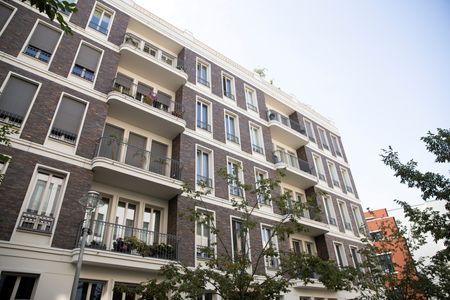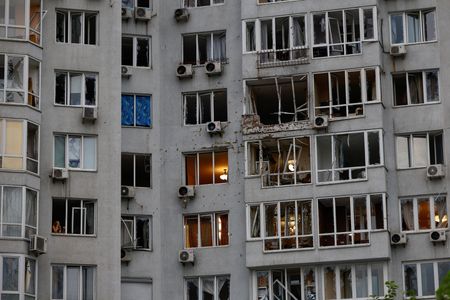By Sarupya Ganguly
BENGALURU (Reuters) – Germany’s struggling housing market will regain some lost ground this year, helped by more European Central Bank interest rate cuts, although there is a sizable risk of price growth undershooting forecasts, a Reuters survey of property experts found.
Fueled by years of low interest rates and strong demand, the property market in Europe’s largest economy boomed until a post-pandemic surge in borrowing and construction costs quickly turned it into one of the hardest-hit markets in a global real estate slump.
Average German house prices will rise 3.5% in 2025, outpacing the 3.0% predicted in a November survey, and moderate to 3.0% in each of the next two years, the February 14-20 Reuters poll of 13 property analysts found.
But nearly two-thirds of respondents said the greater was for prices this year to undershoot their forecast rather than overshoot it.
Some of that hinged on Sunday’s German election, where polls predict a conservative Friedrich Merz-led CDU/CSU win, although the party will likely need one or even two coalition partners to govern. Several poll respondents also cited possible growth risks from U.S. President Donald Trump’s tariff policies.
“Ongoing economic policy uncertainty resulting from the upcoming German elections and the potential impact of the U.S. administration’s economic policies are having a negative impact on consumer confidence,” said Carsten Brzeski, global head of macro at ING.
“Consequently, investment decisions are likely to be postponed until uncertainty has eased. Therefore, we do not expect strong house price growth either.”
The still-sluggish real estate market reflects broader troubles in Germany’s economy, which shrank for a second straight year in 2024 — a downturn not seen since the early 2000s.
Since soaring nearly 25% from 2020 to mid-2022, home prices have fallen about 12%. They rose for the second quarter in a row in Q3 of 2024, but by a slim 0.3%. Home price data for last quarter is expected next month.
The ECB has already reduced its deposit rate by 125 basis points since April. Interest rate futures are oscillating between pricing in two and three more cuts this year, part of the reason housing analysts see a weak recovery ahead.
The number of new apartments and houses built in the country is expected to further decrease significantly this year, held back by red tape, high construction costs and interest rates, the German Property Federation said earlier this month.
That squeeze will keep first-time buyers on the sidelines, the poll found, with 85% of respondents saying already-hot rental price growth will outpace home prices, making it harder to save for a deposit.
“Potential property buyers… are increasingly looking for rental apartments or staying in them for longer,” said Sebastian Schnejdar, senior real estate analyst at BayernLB.
A 54% majority in the poll also said purchasing affordability for first-time homebuyers would worsen over the coming year, slightly down from the more than 60% majority in last quarter’s survey.
“The lasting recession weighs on wage growth and affordability due to rising unemployment and insolvencies, but falling mortgage rates may overcompensate this negative effect” said Jochen Moebert, senior economist at Deutsche Bank Research.
Strong demand and a persistent supply shortage will underpin both house price and rent rises this year, Moebert added.
(Other stories from the Q1 global Reuters housing poll)
(Reporting by Sarupya Ganguly; Polling by Purujit Arun and Renusri K; Editing by Ross Finley)











